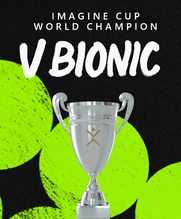|
This weekly digest is a summary of our news and book coverage plus our latest articles. This week we have the second extract from the new book by Mike James, Programmer's Python: Everything is Data, this time on Comprehensions. We also have content from Ian Elliot's Just jQuery on the topic of Selectors.
To receive this digest automatically by email, sign up for our weekly newsletter.

May 26 - June 1, 2022
Featured Articles
Programmer's Python Data - Comprehensions
Mike James

Comprehend comprehensions in this extract from the new book Programmer's Python: Everything is Data by Mike James. This is the second in his "Something Completely Different" series which looks at what makes Python special.
|
Just jQuery The Core UI - Selectors
Ian Elliot

Selectors are what jQuery uses to pick out particular objects in the DOM. While this might start out simply enough, it can appear to be complicated in more testing examples. The trick is to always remember what the selector is doing.
|
|
Programming News and Views
Training For Going Cloud Native
01 Jun | Sue Gee

The digital transformation that is currently in full swing means a huge demand for developers with cloud computing skills. Cloud native is changing the way software development is done and here we look at online training for acquiring the requisite know-how.
|
IKEA First With Matter Hub And It Matters
01 Jun | Harry Fairhead

Matter is the new one-system-to-rule-them-all IoT protocol and surprisingly IKEA is the first to create a working device that you can buy - well in October. What is Matter all about and why does it matter?
|
Born This Day In 1926 John Kemeny, Co-Founder of BASIC
31 May | Sue Gee

John Kemeny, born in Hungary on May 31st 1926, was the co-author of BASIC, standing for Beginner's All-purpose Symbolic Instruction Code. Although it is thought of as the popular language of the 1980's, it originated in 1964 at Dartmouth College in New England to introduce computing to undergraduates studying liberal arts and social sciences.
|
Eclipse Launches Java Binaries Marketplace
31 May | Kay Ewbank

The Eclipse Foundation is opening an online marketplace that will give developers access to standard Java binaries from multiple sources. The creation of the Adoptium Marketplace is intended to provide a vendor-neutral home for the Java ecosystem.
|
Why Is Go Good?
30 May | Mike James

The five co-creators of the Go language, Russ Cox, Robert Griesemer, Rob Pike, Ian Lance Taylor and Ken Thompson, have co-authored a paper in this month's edition of Communications of the ACM in which they address the question, Why has Go grown in popularity when so many other language projects have not?
|
Microsoft Announces Native Visual Studio On Arm
30 May | Kay Ewbank

Microsoft has announced plans for an end-to-end Arm native toolchain including full Visual Studio 2022, Visual Studio Code, Visual C++, Windows Subsystem for Linux, Windows Subsystem for Android and .NET.
|
Imagine Cup World Champions 2022
29 May | Sue Gee

Team V Bionic from Saudi Arabia was crowned the Imagine Cup World Champions at Microsoft Build. Just before the winning team was announced it was revealed that, in honor of it being the 20th Anniversary of the competition, Microsoft was awarding a further $20,000 so that the two runner up teams would also have funding to take their projects forward.
|
Carla Gomes Receives 2021 AAAI Allen Newell Award
27 May | Alex Armstrong

Carla Gomes of Cornell University has been named as the 2021 recipient of the ACM-AAAI Allen Newell Award for her work in Computational Sustainability and for foundational contributions to Artificial Intelligence.
|
Whirlwind I Shut Down 65 Years Ago
27 May | Sue Gee

On May 27, 1957 MIT shut down its Whirlwind I computer, after almost a decade of service. The world's first real-time digital computer, Whirlwind was the first to use magnetic-core memory, a breakthrough made by Jay Forrester.
|
.NET 7 Adds Native AOT
26 May | Kay Ewbank

The third preview of .NET 7 has been released with support for Native AOT (Ahead-of-time) compilation. Now open source, .NET was created from a combination of .NET Framework and .NET Core, and this latest incarnation aims to improve observability, startup times, codegen, and GC regions in addition to native AOT compilation.
|
GitLab 15 Improves WYSIWYG
26 May | Alex Denham

GitLab, the web-based repository manager for Git, has grown into a DevOps platform designed to combine the ability to develop, secure, and operate software in a single application. Highlights of its new version include WYSIWYG for wikis and container scanning in all tiers.
|
Books of the Week
If you want to purchase, or to know more about, any of the titles listed below from Amazon, click on the book jackets at the top of the right sidebar. If you do make Amazon purchases after this, we may earn a few cents through the Amazon Associates program which is a small source of revenue that enables us to continue posting.
Full Review
This slim introduction to using Linux is targetted at home users and uses Linux Mint for its examples. Harry Fairhead concludes his review with:
Overall, this is a good, very simple and very limited introduction to Linux Mint. It provides a very non-technical look at getting started with Linux, which is not as easy a process as it should be.
Added to Book Watch
More recently published books can be found in Book Watch Archive.
From the I Programmer Library
Published this month:

This is the second of our Something Completely Different titles that look at what makes Python special and sets it apart from other programming languages. These books aren’t for the complete beginner and some familiarity with both object-oriented programming and Python is assumed. The first in the series, Programmer’s Python: Everything is an Object, about to be available in its second edition, reveals how Python has a unique and unifying approach with regards to class and objects. Following the same philosophy the language also treats data in a distinctly Pythonic way. What we have in Python are data objects that are very usable and very extensible. From the unlimited precision integers, referred to as bignums, through the choice of a list to play the role of the array, to the availability of the dictionary as a built-in data type, Python behaves differently to other languages and this book is what you need to help you make the most of these special features. There are also complete chapters on Boolean logic, dates and times, regular expressions and bit manipulation.
Recently published:
Programmers think differently from non-programmers, they see and solve problems in a way that the rest of the world doesn't. In this book Mike James takes programming concepts and explains what the skill involves and how a programmer goes about it. In each case, Mike looks at how we convert a dynamic process into a static text that can be understood by other programmers and put into action by a computer. If you're a programmer, his intent is to give you a clearer understanding of what you do so you value it even more.
 I Programmer has reported news for over 10 years. You can access I Programmer Weekly back to January 2012 for all the headlines plus the book reviews and articles. I Programmer has reported news for over 10 years. You can access I Programmer Weekly back to January 2012 for all the headlines plus the book reviews and articles.
To keep up with the latest news and receive this digest automatically by email, sign up for our weekly newsletter and follow us on Twitter, Facebook, and LinkedIn, where you are welcome to share all our stories.
You can also subscribe to our RSS Feeds - we have one for Full Contents, another for News and also one for Books with details of reviews and additions to Book Watch.
Send your programming press releases, news items or comments to: NewsDesk@i-programmer.info
|

















